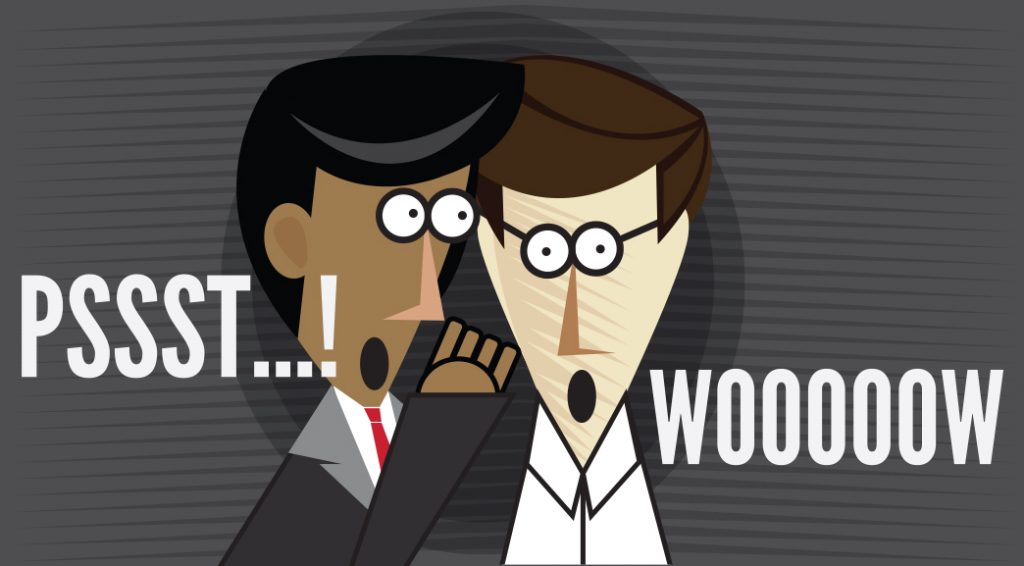Managing a large research enterprise comes with its fair share of pressure. Successful leaders make a conscious effort to maintain their well-being, relying on support networks both on and off campus.
We asked research and innovation leaders from Virginia Tech, Vanderbilt, the University of Pittsburgh and our own fearless leader, Amr Elnashai, to reveal how they maintain a healthy work/life balance and squeeze the most out of every day.
Padma Raghavan, Vanderbilt University
I like to be out and about – I want to be visible and see first-hand what’s going on. If I need to meet with a faculty member, many times I’ll go to them.
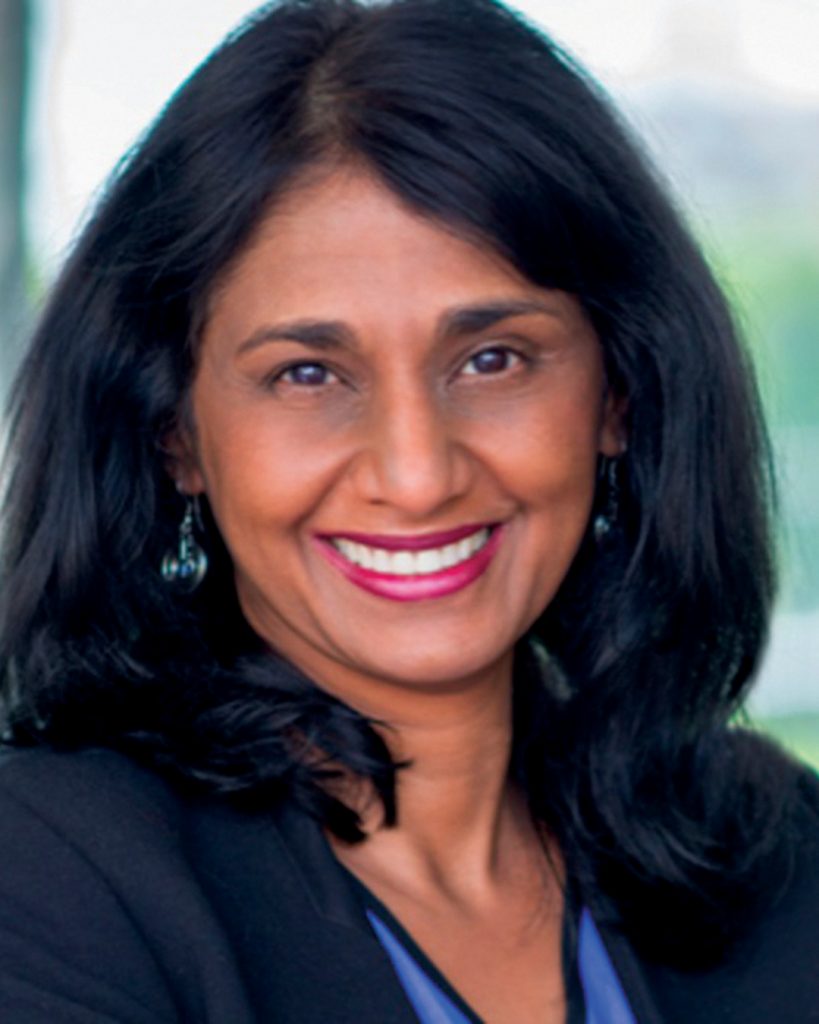
Padma Raghavan, vice provost for research at Vanderbilt University, is an expert in high-performance computing and computational science and engineering.
She has conducted research in the field for many years and is a founding director of the Pennsyvania State Institute for Cyber Science. She’s been a leader to many, believes in driving outcomes and values her faculty and staff greatly.
Clearly, Padma is super smart, personable, driven and busy; but that doesn’t mean she won’t find time to enjoy comfort food or curl up with a good book. Currently, she’s reading Florence Kings’ Southern Ladies and Gentlemen – a slightly dated but hilarious look at southern ethos.
What time do you wake up?
6:30 a.m. I’m not an early riser by nature, but the job calls for it.
“Go to” food
Shrimp noodle soup…it’s great comfort food.
Most notable scientific discovery made under her leadership
I’m very proud of the work our Vanderbilt scientists have done to develop potential new treatments for Alzheimer’s disease and schizophrenia, both extremely devastating diseases.
Research on VU319, the new drug began more than 10 years ago by a team of scientists at the Vanderbilt Center for Neuroscience Drug Discovery led by center director P. Jeffrey Conn and Craig W. Lindsley, co-director and director of Medicinal Chemistry. On July 29, 2017, the drug was administered to the first volunteer enrolled in a first-in-human Phase 1 clinical trial at the Vanderbilt Institute for Clinical and Translational Research. According to the Alzheimer’s Association, the disease is the sixth leading cause of death in the United States and more than 5 million people are living with the chronic neurodegenerative illness.
What is your best trait?
Problem solving…and I’m definitely an optimist.
What is your worst habit?
Reading too much!
Rob A. Rutenbar, University of Pittsburgh
I live very close to campus, about less than a mile which makes life (and my job) easier. I want to be highly available to my team.
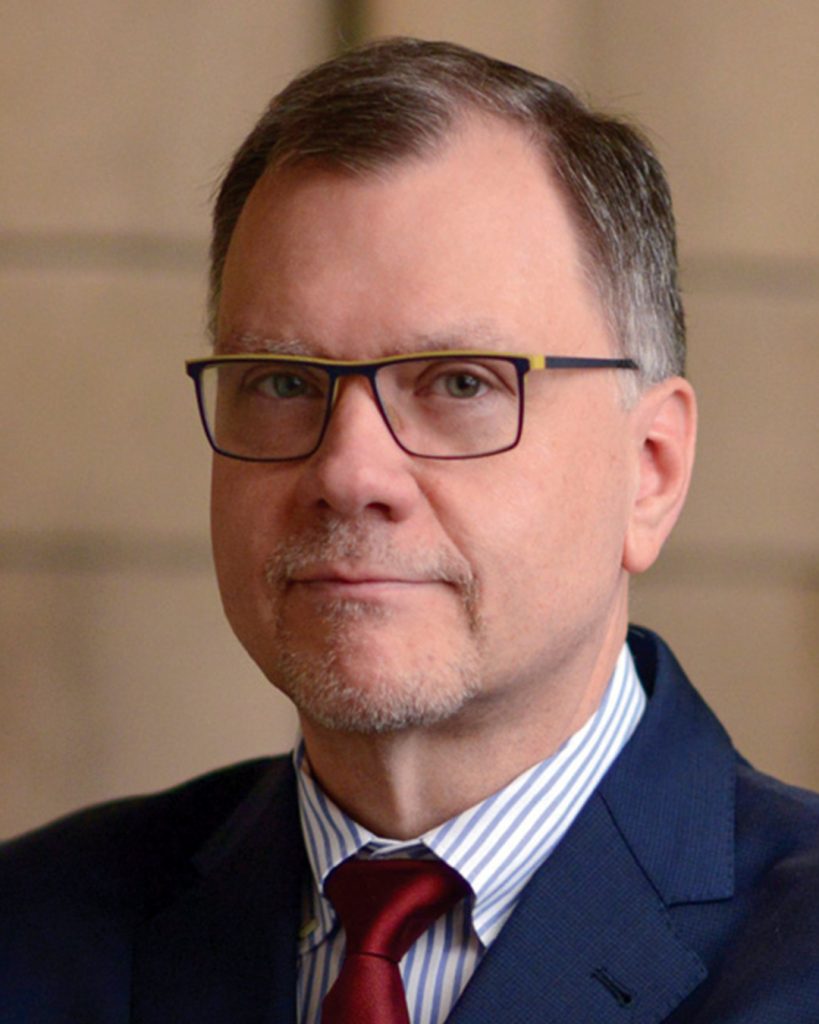
Technological innovation is nothing new to Rob Rutenbar, senior vice chancellor for research at the University of Pittsburgh. With more than 40 years’ experience in higher education, he was the ideal person for the newly created position.
His career accomplishments include serving as the Abel Bliss Professor of Engineering and head of the Department of Computer Science at the University of Illinois at Urbana Champaign. He was also a professor of computer engineering at Carnegie Mellon University for more than 20 years.
Moreover, not only is Rutenbar well accomplished in academia, he is also a successful entrepreneur. He founded two tech firms, Neolinear and Voci Technologoes, along with the Center for Circuit and Systems, a multi-university consortium that developed chip design technology funded by large companies such as Intel and IBM.
What time do you wake up?
5 a.m. – I usually try to hit the gym. Naturally, I’m a morning person.
What is your “go to” food?
I love vegetarian or Indian food.
How do you stay organized?
Typical stuff – keeping my calendar and phone updated, but I have an exceptionally talented and dedicated executive team who help me stay organized and on top of things. Above all, it’s the effort put in to staying organized that counts.
What is your one wish?
I wish I could do more Yoga classes!
What is your best trait?
I’m able to manage multiple, high maintenance initiatives (with great support from my team) – We can juggle many flaming chainsaws around here.
What makes someone a memorable leader?
Communication – A good, memorable leader communicates with clarity and intention to faculty and staff. Also, a great leader facilitates connections among the faculty. When people are united through common interests or research focus areas innovation occurs. Our best work comes from that.
Theresa Mayer, Virginia Tech University
Our campus is one big loop. To get some exercise my colleagues and I like to walk those loops. Some of the best ideas come from walking those loops.
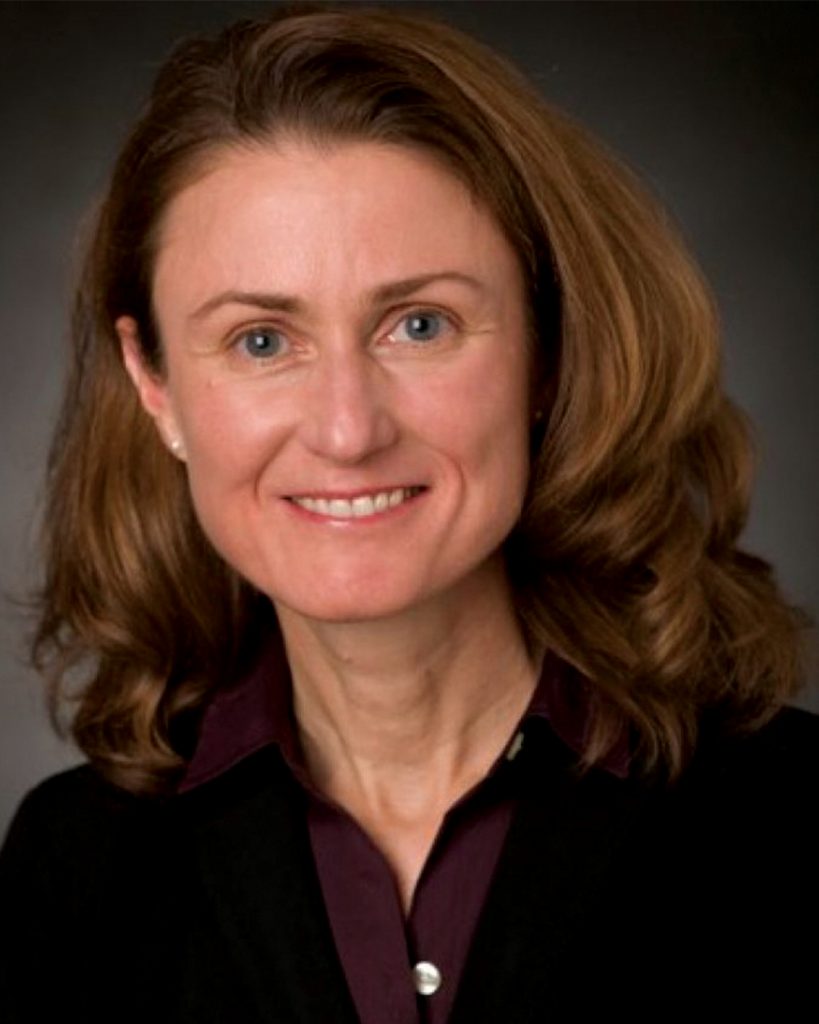
Theresa Mayer, was appointed to vice president of research and innovation at Virginia Tech in January 2016. Since then, she has never looked back.
Not only does she oversee research focus areas such as cybersecurity, social informatics and cancer biology, Mayer is deeply involved in the university’s new business engagement center, a venture to expand partnerships between Virginia Tech and leading companies.
Furthermore, with all of her professional success and accomplishments, Mayer is most proud of her children, what the future holds for them and providing opportunities to live their dream and never look back.
What time do you wake up?
Early! – 6:15 a.m. I have kids
What is your proudest personal accomplishment?
My kids – I have 12-year-old fraternal twins and I love watching them grow up.
What makes someone a memorable leader?
Vision – a great leader must have a vision and be able to communicate the vision to staff and faculty. A great leader also deeply understands an organization and ponders over many questions: Who are we? Why do we do this work? What makes us different? How do we make the world better?
What is the most notable initiative under your leadership?
I’m very proud of the Virginia Tech’s new business engagement center, led by Brandy Salmon. The work of the center facilitates partnerships between the business community and the university. Academia must engage and partner with industry leaders in order to advance research and business endeavors for the betterment of the commonwealth of Virginia and the world.
How do you manage work and life?
I have a very supportive husband and family – they keep the train moving.
How do you overcome defeat?
Accept feedback in all shapes and forms – I’ve had a lot of great mentors in my life who’ve given me wonderful advice and feedback. Sometimes the feedback is tough love in which you have to be open to it. That’s how you learn from mistakes and be better the next time.
Amr Elnashai, University of Houston
Success to me is observing that my work improved society.
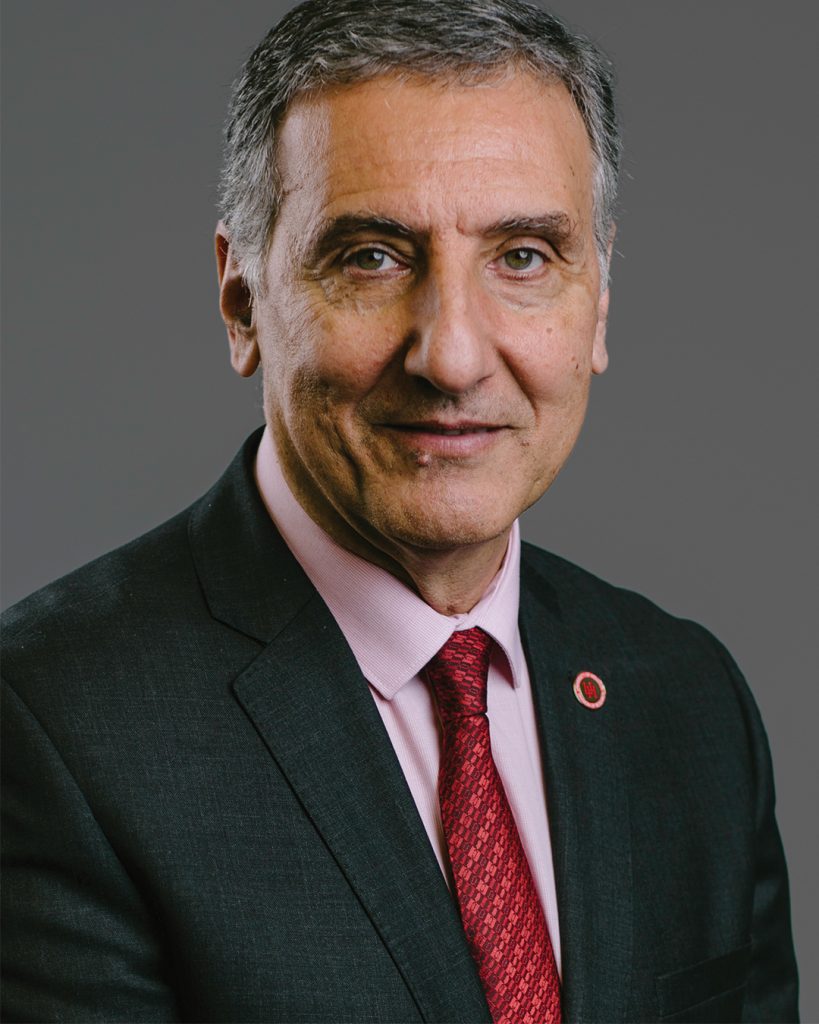
Amr Elnashai arrived at the University of Houston in July 2017. Since then, he’s hit the ground running to lead and move forward the ambitious research goals of the institution. It’s not an easy task, but he is no stranger to taking on challenges or meeting high expectations.
He came to UH from Penn State, where he was the dean of the College of Engineering, one of the largest in the country. Amr accomplished a lot during his nearly four years there – hiring more than 70 new faculty members, creating 16 new graduate degree programs and managing a tremendous increase in undergraduate enrollment numbers from 2014 to 2017 school years, to reach 11,000.
Prior to Penn State, Amr was the department head of the Department of Civil and Environmental Engineering at the University of Illinois at Urbana-Champaign where he also served as director of the NSF-multi-institution interdisciplinary Mid-America Earthquake Center.
Amr spent over 23 years teaching and conducting earthquake research overseas. He was professor of Earthquake Engineering and head of division at Imperial College in London from 1985 to 2001. As a result, his interest in learning more about societal impacts of earthquakes spawned 140 refereed journal papers, magazine articles and three books which include the Fundamentals of Earthquake Engineering.
Recovering from natural disasters can take years or even decades. Amr has dedicated a large part of his career determining how to better mitigate the severity of earthquakes on infrastructure, economies and communities.
What time do you wake up?
Between 6 and 7 a.m.
What’s your “go to” beverage?
Tea…Black tea and milk specifically. I spent more than 20 years in the UK. Tea has become a fundamental for me.
What is your most notable scientific research endeavor?
Understanding the true impact of earthquakes on various facets of society through event simulation, I led the development of an earthquake impact simulation tool called MAEviz. My research delved into how earthquakes truly affect infrastructure and their interaction with the economy and people. Currently, MAEviz is being adapted to examine hurricanes.
How do you stay organized?
You are assuming I stay organized (he laughs). I have many to-do lists, subfolders on Outlook and hard disc, mapped, and Ashley, my executive assistant, keeps things on track too.
How do you overcome defeat?
One is only defeated if they do not learn from their mistakes.
What is your best trait?
I do not take myself too seriously – Peter Ustinov, an English actor once said, “It is our responsibilities, not ourselves that we should take seriously.”
What is your worst habit?
I have too many hobbies – I enjoy myself (a little too much) outside of work. I love to watch movies, fish and read. Trying to balance the job and my hobbies is difficult.
What movies do you like and dislike?
The Deep with Jacqueline Bisset and Nick Nolte – I have seen it more than 30 times and it is a great film. To be honest, I cannot name a movie I dislike. Even if a movie is deemed terrible, I learn something from it and gain a new experience.
What is your proudest personal accomplishment?
My three children. They are all unique and I am very proud of them. A very close second are my students – they are my true legacy, all 46 PhDs and many hundred graduate students, more so than any research work I have done. Consequently, I have trained and taught students from across the world who have gone on to be quite successful. I am very proud of them as well.
